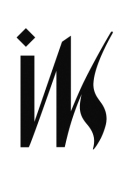Women’s Institute Secures Fair Trials, Release for Women Prisoners with Help From Grant

Women arrested in Lebanon face an iron curtain, made of gender bias, inequality and injustice: only 20 percent of female inmates have access to attorneys, while the remaining 80 percent, accused of crimes such as prostitution, adultery, embezzlement and illegal entry, face court without a lawyer, many times after waiting two years for the writ of habeas corpus.
From November 2007 to the end of last July, however, a $50,000 grant from the Open Society Institute (OSI), along with work done by the Rashid Karami law firm, enabled the Institute for Women’s Studies in the Arab World (IWSAW) to secure legal representation, fair hearings, and eventual release or repatriation for inmates of the Tripoli Women’s Prison. IWSAW reviewed more than 50 cases of incarcerated women - most of whom had no family or other support and had endured years of imprisonment - and managed to reopen 14 of those cases, with seven women ultimately regaining their freedom.
IWSAW Director Dr. Dima Dabbous-Sensenig, with Assistant Director Anita Nasser, oversaw the implementation of the grant. IWSAW set about addressing the dire needs of incarcerated women in 2000, focusing on three specific areas: prison infrastructure, rehabilitation and women’s health. Converted from warehouses or rundown buildings, women’s prisons remain overcrowded and still do not meet the United Nations’ minimum standards of comfort and safety. But IWSAW’s close work with the Ministry of Interior, the Ministry of Justice, the Internal Security Forces, the General Security, and the prison warden and guards could lead to lasting change for Lebanon’s imprisoned.

